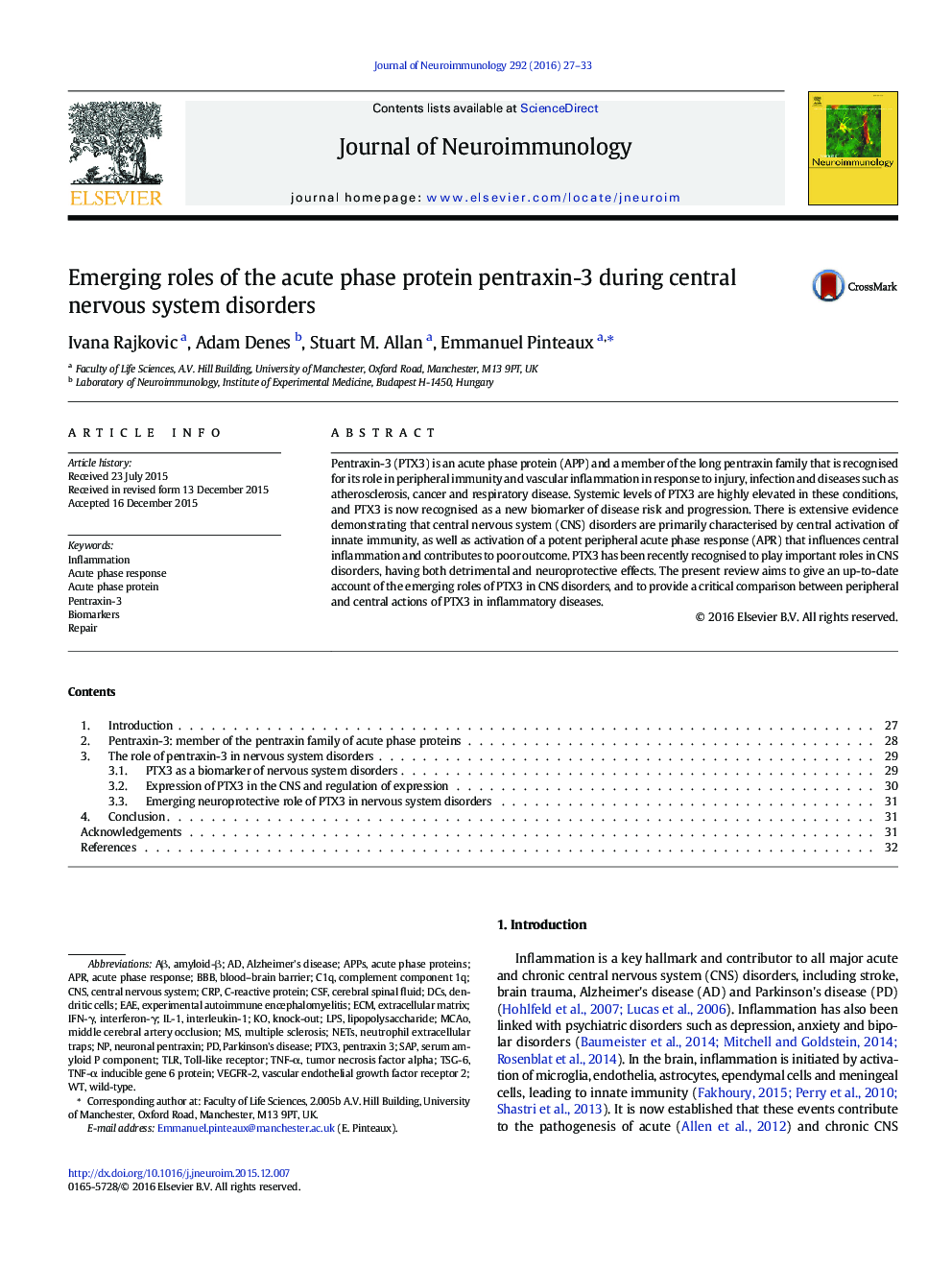| Article ID | Journal | Published Year | Pages | File Type |
|---|---|---|---|---|
| 6020128 | Journal of Neuroimmunology | 2016 | 7 Pages |
Abstract
Pentraxin-3 (PTX3) is an acute phase protein (APP) and a member of the long pentraxin family that is recognised for its role in peripheral immunity and vascular inflammation in response to injury, infection and diseases such as atherosclerosis, cancer and respiratory disease. Systemic levels of PTX3 are highly elevated in these conditions, and PTX3 is now recognised as a new biomarker of disease risk and progression. There is extensive evidence demonstrating that central nervous system (CNS) disorders are primarily characterised by central activation of innate immunity, as well as activation of a potent peripheral acute phase response (APR) that influences central inflammation and contributes to poor outcome. PTX3 has been recently recognised to play important roles in CNS disorders, having both detrimental and neuroprotective effects. The present review aims to give an up-to-date account of the emerging roles of PTX3 in CNS disorders, and to provide a critical comparison between peripheral and central actions of PTX3 in inflammatory diseases.
Keywords
ECMTLRDCsIFN-γMCAOEAEVEGFR-2PTX3AβC1qIL-1TSG-6LPSNETsamyloid-βexperimental autoimmune encephalomyelitisAprinflammationmiddle cerebral artery occlusioninterferon-γinterleukin-1AppsAlzheimer's diseaseParkinson's diseaseRepairneutrophil extracellular trapstumor necrosis factor alphaToll-like receptorSerum amyloid P componentCNSBBBBlood–brain barrierDendritic cellsCerebral Spinal Fluidcentral nervous systemSAPTNF-αlipopolysaccharideExtracellular matrixCSFMultiple sclerosisknock-outBiomarkerswild-typeacute phase responseAcute phase proteinAcute phase proteinsC-reactive proteinCRPPentraxin-3pentraxin 3vascular endothelial growth factor receptor 2
Related Topics
Life Sciences
Immunology and Microbiology
Immunology
Authors
Ivana Rajkovic, Adam Denes, Stuart M. Allan, Emmanuel Pinteaux,
